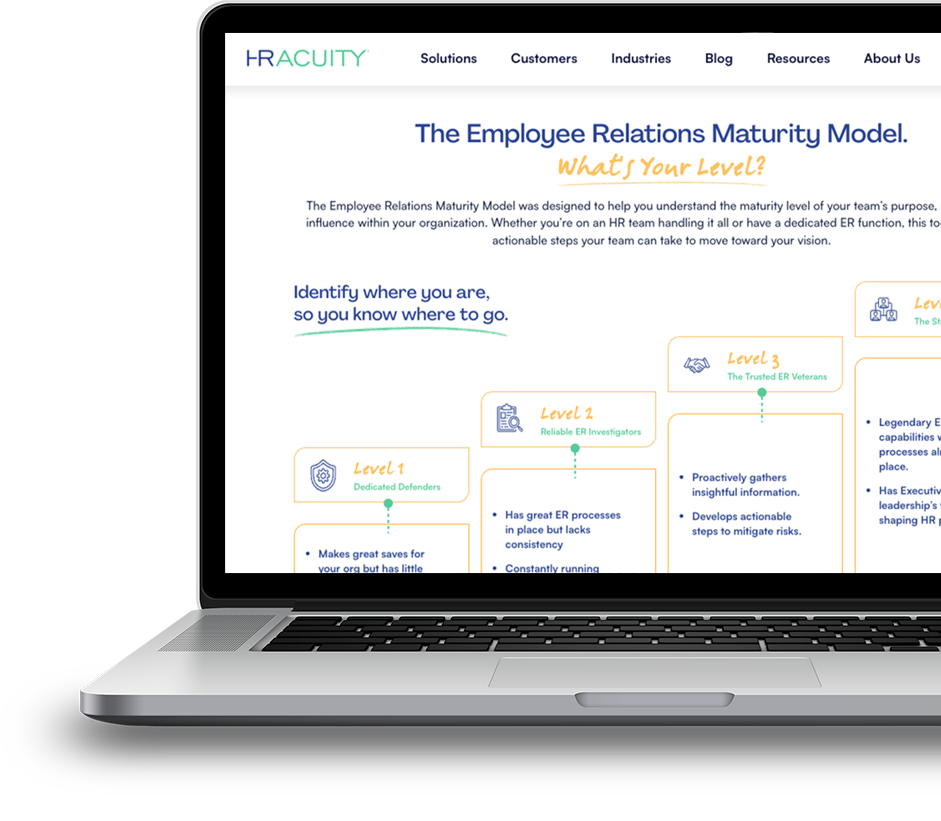What Is A Code Of Conduct?
Whether spelled out in an official manual or inherently understood as an unspoken expectation, most businesses have a code of conduct. While both are acceptable, organizations that clearly communicate their code of conduct in writing have far greater success ensuring their employees understand, embrace and follow that code. A formal code of conduct, explicitly expresses your organization’s expectations and provides employees with more context around why the code is in place.
What Does a Code of Conduct Mean for Employees?
For employees, your code of conduct is the set of ground rules and standards for behavior that leadership expects them to follow. The code of conduct serves as their explicit guidance if they have questions about a certain behavior. It also helps employees understand what they can expect from their coworkers as well.
Do Businesses in All Industries Have a Code of Conduct?
While all companies should have some sort of code of conduct, most industries don’t mandate it. However, companies that want to protect their brand reputation do enforce a code of conduct, regardless of the industry, size, or number of employees. While the details for specific codes of conduct will vary from one business or industry to another, the best employer brands in the world take them seriously, including Apple, Google, Hershey, Starbucks and PepsiCo.
As a rule of thumb, leaders should create codes of conduct that are hyper relevant to the organization, employees, and clients. Because of this, a code of conduct might look strikingly like a business’s values, principles, mission, and vision since these ideals often align and even overlap.
How Is a Code of Conduct Different From Other Policies?
It’s important to establish policies, procedures, and guidelines within an organization, but they shouldn’t be conflated with a code of conduct. While a code of conduct refers to general expectations for behavior, specific policies, procedures and guidelines are much more specific. Let’s review the distinctions between each:
- Policies are formal rules that govern an organization’s leadership and legal approach to specific issues. Policies focus on one issue at a time. For example, a sexual harassment policy defines what is and is not considered sexual harassment.
- Procedures are the specific steps taken to implement a policy. A procedure provides step-by-step instructions, allowing for easy adoption and implementation. It also defines tried and tested processes that are regularly used by the organization.
- Guidelines set the tone and provide informal guidance for the organization, employees, and business units to follow for specific circumstances. As the name suggests, guidelines are not hard and fast policies or rules.
Why Should Your Business Have a Code of Conduct?
Not only is it just good business practice, a detailed code of conduct can help prevent issues. When employees understand and maintain acceptable behavior while at work, they typically form better working relationships with their team members and avoid making the mistakes that trigger bigger problems.
A code of conduct is a proactive way to improve many areas that employee relations professionals may oversee because it brings greater clarity to the employee-employer relationship. Here are a few areas where having a published code of conduct can help:
- Promoting behavior that improves health and safety.
- Reducing legal risks such as preventable harassment cases.
- Improving engagement and building trust between management and teams.
- Preventing misunderstandings that result in termination or disciplinary action.
- Reinforcing employee voices via continuous listening and anonymous reporting.
- Scaling the business with consistent standards, irrespective of location.
Developing a Code of Conduct for Your Organization
If you want to develop your organization’s code of conduct but you aren’t sure where to start, our solutions can help.
Get in touch to book a demo to help you start building your code of conduct.




